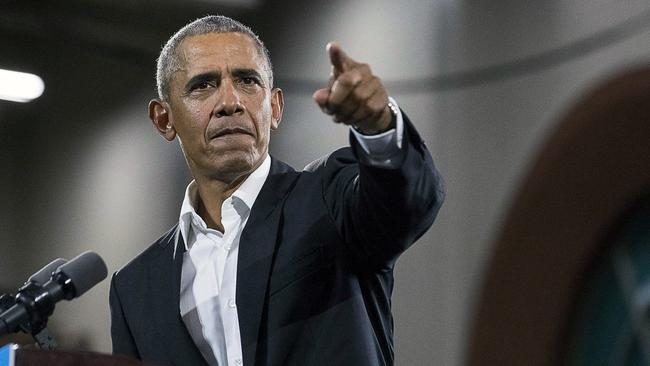US mid-terms: No telling who will win this election
Polls point to a Democrat victory in the House of Representatives but neither party has any idea how Americans will really vote.

Donald Trump is entering these US mid-term elections on a high with everything falling into place for him at the right time.
The question is whether this will be enough to defy the polls which still point to a likely - if modest - victory by Democrats in the House of Representatives, although Republicans look set to retain the Senate.
There are so many unknown factors feeding into one of the most unique mid-terms in modern American politics.
How will voters react to their first chance to pass judgment on one of the most unconventional presidents in their history?
Almost everyone agrees that these midterms - more than any other - are all about the president. Trump floats over every debate, making local candidates often seem insignificant.
Will voters cast their ballots on the basis of his unconventional and confrontational style or on his policies and outcomes?
Guide to the US mid-term elections
Trumps’ style divides both extremes of US politics neatly. His most loyal voting base love his red meat, swaggering tough guy and non-politically correct approach.
His detractors, including Democrats, have been waiting for this moment to turn up in force to denounce what they see as a trashing of the office of the presidency and of American values under Trump.
Yet both of these groups are barely relevant to the outcome of the mid-terms. The key will be those people who turned from the Democrats to Trump in 2016 and who are not necessarily wedded to either party but who will cast their verdict on him.
According to some polls this includes a silent army of educated women in the suburbs who are traditional Republicans and who voted for him in 2016 but who have been deterred by his style of leadership.

Yet there are other voters who did not vote for him in 2016 but who have been won over by his crash-through approach to the presidency.
The other question is to what extent voters will be motivated by individual issues.
Trump enters these elections in a position of strength because the US economy is humming, with fresh strong figures released only days ago showing strong jobs growth, historically low unemployment and - crucially - signs of proper wages growth after an era of wages stagnation.
Trump can rightly claim to voters that under his presidency Americans are enjoying good times. Polls suggest that for many voters a strong economy, jobs and the ability to put food on the dinner table often outweighs what they see as the negative aspects of his leadership.
Trump has also been given the political gift of the large caravan of migrants winding its way through Mexico toward the US border just ahead of the midterms.
He has exploited this opportunity ruthlessly, using it to stoke fears of a tide of dangerous, violent migrants pouring indiscriminately across the US border.
Trump knows this plays well to his base but when you strip his rhetoric of its unfortunate excesses, his pitch is no different to his successful 2016 pitch for strong border control and more selective immigration.
Trump appears to have trapped the Democrats on this issue, accusing them of prioritising, in his words, the rights of illegal aliens over US citizens. Will more Americans see Trump’s border security mantra as necessary or will more of them feel alienated by his hardline position?
And then there is the mystery of the polls themselves. The latest polls show the Democrats have a generic lead of around 7 points over the Republicans in the house, but the final result will depend on how these votes fall in individual seats.
But polls were proved wrong in 2016 and you can argue that they still remains within the margin of error to allow the Republicans to pull off an unlikely victory in the house.
With so many factors in play, a split result - a Democrat house and a Republican Senate - is still the most likely, but both parties are hedging their bets. Why? Because they have no idea how Americans will vote for this unique president.
Cameron Stewart is also US Contributor for Sky News Australia





To join the conversation, please log in. Don't have an account? Register
Join the conversation, you are commenting as Logout